第13章
"My father died June 15th, 1530; my mother survived him three years and twelve days.""Have you any brothers and sisters?"
"I had one brother, who only lived three months.My four sisters, Inez, Dorothea, Marietta, and Pedrina, all came to live at Artigues when I did; they are there still, and they all recognised me.""What is the date of your marriage?"
"January 10, 1539."
"Who were present at the ceremony?"
"My father-in-law, my mother-in-law, my uncle, my two sisters, Maitre Marcel and his daughter Rose; a neighbour called Claude Perrin, who got drunk at the wedding feast; also Giraud, the poet, who composed verses in our honour.""Who was the priest who married you?"
"The old cure, Pascal Guerin, whom I did not find alive when Ireturned."
"What special circumstances occurred on the wedding-day?""At midnight exactly, our neighbour, Catherine Boere, brought us the repast which is known as 'medianoche.' This woman has recognised me, as also our old Marguerite, who has remained with us ever since the wedding.""What is the date of your son's birth?"
"February 10, 1548, nine years after our marriage.I was only twelve when the ceremony took place, and did not arrive at manhood till several years later.""Give the date of your leaving Artigues."
"It was in August 1549.As I left the village, I met Claude Perrin and the cure Pascal, and took leave of them.I went towards Beauvais, end I passed through Orleans, Bourges, Limoges, Bordeaux, and Toulouse.If you want the names of people whom I saw and to whom I spoke, you can have them.What more can I say?"Never, indeed, was there a more apparently veracious statement! All the doings of Martin Guerre seemed to be most faithfully described, and surely only himself could thus narrate his own actions.As the historian remarks, alluding to the story of Amphitryon, Mercury himself could not better reproduce all Sosia's actions, gestures, and words, than did the false Martin Guerre those of the real one.
In accordance with the demand of the accused, Bertrande de Rolls was detained in seclusion, in order to remove her from the influence of Pierre Guerre.The latter, however, did not waste time, and during the month spent in examining the witnesses cited by Martin, his diligent enemy, guided by some vague traces, departed on a journey, from which he did not return alone.
All the witnesses bore out the statement of the accused; the latter heard this in prison, and rejoiced, hoping for a speedy release.
Before long he was again brought before the judge, who told him that his deposition had been confirmed by all the witnesses examined.
"Do you know of no others?" continued the magistrate."Have you no relatives except those you have mentioned?""I have no others," answered the prisoner.
"Then what do you say to this man?" said the judge, opening a door.
An old man issued forth, who fell on the prisoner's neck, exclaiming, "My nephew!"Martin trembled in every limb, but only for a moment.Promptly recovering himself, and gazing calmly at the newcomer, he asked coolly--"And who may you be?"
"What!" said the old man, "do you not know me? Dare you deny me?--me, your mother's brother, Carbon Barreau, the old soldier! Me, who dandled you on my knee in your infancy; me, who taught you later to carry a musket; me, who met you during the war at an inn in Picardy, when you fled secretly.Since then I have sought you everywhere; Ihave spoken of you, and described your face and person, until a worthy inhabitant of this country offered to bring me hither, where indeed I did not expect to find my sister's son imprisoned and fettered as a malefactor.What is his crime, may it please your honour?""You shall hear," replied the magistrate."Then you identify the prisoner as your nephew? You affirm his name to be---?""Arnauld du Thill, also called 'Pansette,' after his father, Jacques Pansa.His mother was Therese Barreau, my sister, and he was born in the village of Sagias.""What have you to say?" demanded the judge, turning to the accused.
"Three things," replied the latter, unabashed, "this man is either mad, or he has been suborned to tell lies, or he is simply mistaken."The old man was struck dumb with astonishment.But his supposed nephew's start of terror had not been lost upon the judge, also much impressed by the straightforward frankness of Carbon Barreau.He caused fresh investigations to be made, and other inhabitants of Sagias were summoned to Rieux, who one and all agreed in identifying the accused as the same Arnauld du Thill who had been born and had grown up under their very eyes.Several deposed that as he grew up he had taken to evil courses, and become an adept in theft and lying, not fearing even to take the sacred name of God in vain, in order to cover the untruth of his daring assertions.From such testimony the judge naturally concluded that Arnauld du Thill was quite capable of carrying on, an imposture, and that the impudence which he displayed was natural to his character.Moreover, he noted that the prisoner, who averred that he was born in Biscay, knew only a few words of the Basque language, and used these quite wrongly.He heard later another witness who deposed that the original Martin Guerre was a good wrestler and skilled in the art of fence, whereas the prisoner, having wished to try what he could do, showed no skill whatever.